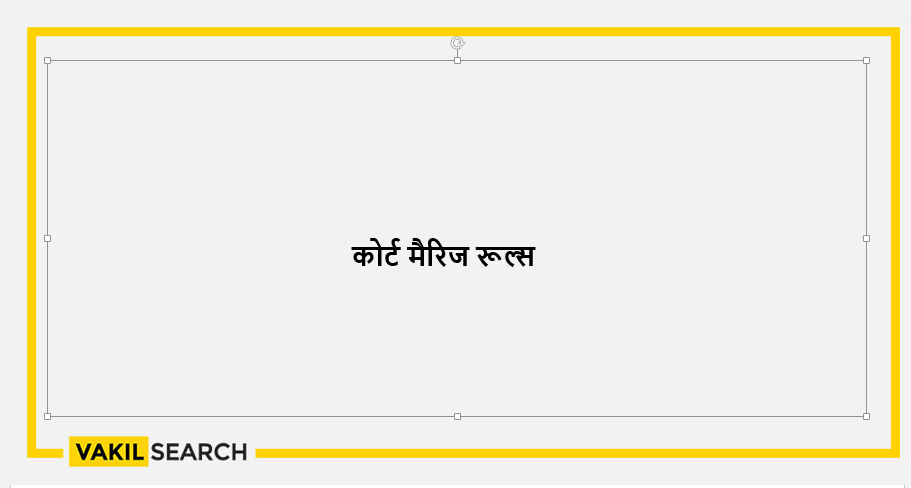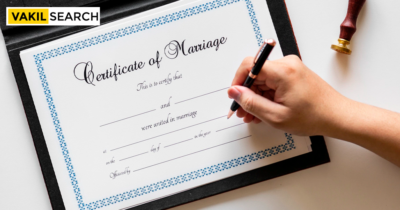Court marriage, also known as registered marriage, is a legal procedure in India that allows couples to get married in a court of law without any religious ceremony. It is becoming increasingly popular among people who want to get married without any religious or traditional customs. In this blog, we will discuss the requirements for court marriage in India.
Court marriage, also known as registered marriage, is a legal process that allows couples to get married in a court of law without any religious or traditional customs. It is becoming increasingly popular in India, especially among couples who want to avoid the complexities and expenses of a traditional wedding. However, to get married in a court of law, there are certain requirements that the couple needs to fulfill. These requirements are designed to ensure that the marriage is legally valid and recognized by the Indian government.
What are the Requirements for a Court Marriage?
Age Requirement: The first requirement for court marriage in India is the age of the bride and groom. Both parties must be at least 18 years old. If the bride or groom is below 21 years of age, they need to obtain the consent of their parents or guardians.
Mental and Physical Fitness: Both the bride and groom must be mentally and physically fit. They need to provide a medical certificate from a registered medical practitioner stating that they are physically and mentally fit for marriage.
Identity Proof: To get married in a court of law, both the bride and groom need to have valid identity proofs such as Aadhaar card, passport, voter ID, or driving license. They also need to submit their photographs and address proof.
Witnesses: Two witnesses are required for online court marriage in India. The witnesses must be above the age of 18 and should have valid identity proofs.
Notice of Intended Marriage: The couple needs to give a notice of intended marriage to the Marriage Registrar of the district where at least one of them has resided for at least 30 days prior to the date of giving the notice. The notice must be in writing and should include the details of the bride and groom, such as their name, age, address, occupation, and marital status.
Waiting Period: After the notice of intended marriage is given, the Marriage Registrar will display the notice on the Marriage Registrar’s office notice board for 30 days. In this case, the waiting period is referred to as the “cooling-off” period. Any objections raised during this period will be investigated by the Marriage Registrar.
Declaration: After the completion of the waiting period, the couple and their witnesses need to appear before the Marriage Registrar and sign a declaration stating that they are getting married on their own free will and without any pressure.
Marriage Certificate: Once the declaration is signed, the Marriage Registrar will issue a marriage certificate. The certificate is proof of the marriage and can be used for various purposes, such as applying for a passport, changing the name, or applying for a visa.
What are the Advantages of Court Marriage?
There are several advantages of court marriage, including:
- A court marriage is a straightforward and simple process that does not require a lot of preparation.
- The cost of court marriages is typically lower than that of traditional weddings since there is no elaborate ceremony or reception involved.
- Court marriages are legal and recognized by law, ensuring their legitimacy in all legal situations.
- Court marriages are private and confidential, allowing couples to keep their ceremony simple and intimate without family members or friends interfering.
- In court marriages, the process can be completed quickly, usually in a matter of hours, allowing couples to begin their lives together without having to wait for anything to happen.
- Couples who cannot or do not wish to have a traditional religious wedding can choose to have a court marriage instead.
- Couples who are too busy to take time off work for a traditional wedding may find court marriage convenient because it can be performed at any time, including weekends and holidays.
Conclusion
In conclusion, court marriage is a simple and convenient way to get married in India. The requirements for court marriage are straightforward and easy to fulfill. It is important to note that the procedure may vary slightly from state to state, but the basic requirements remain the same. We will provide you with all the information you need about court marriages in India by our team of legal experts at Vakilsearch. If you are planning to get married in a court of law, make sure to follow the guidelines and fulfill the court marriage requirements to avoid any legal issues in the future.
Also, Read:









